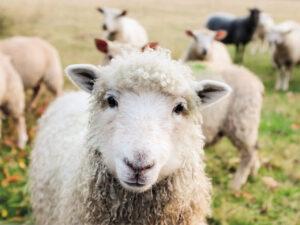Speciesism in AI could hinder animal welfare reforms and the shift to plant-based diet
Speciesism is a strengthening concept in animal ethics that claims a moral advantage for members of the human species. According to Food Ingredients First, animal rights groups are concerned about the rise of speciesism.
This article is available for reading in Trade magazin 2024/6-7
Governments around the world have so far failed to create a regulatory framework that would limit the potential risks of AI systems to society. Although the AI Act of the European Union – which is expected to come into full force in 2026 – aims to limit AI systems based on their potential risks to society, the framework system doesn’t provide specific protection for animals. As Sam Tucker, executive director of Open Paws and CEO of VEG3 has explained to Food Ingredients First: animals aren’t able to lobby for their own interests, so it is up to us humans to take them into account in legislation.

According to Mimi Bekhechi, campaign adviser of PETA Netherlands, research has found that the language used to describe animals can influence how we see and treat them. “AI language systems absorb our human-centric biases, so using terms that downplay cruelty to animals or carry long-held negative perceptions of certain species perpetuates speciesism, which increases the likelihood that AI tools will do the same”, she told Food Ingredients First. There is an inherent risk of bias in AI systems, as they depend on the data and algorithms used to “train” them.
In spite of the inherent bias and lack of regulation, AI systems have also brought positive results in terms of animal welfare standards and more sustainable food systems. PETA’s expert sees the age of animal testing coming to an end, in part owing to the mind-blowing innovations that AI is helping to develop. A good example of this is organ-on-a-chip technology, which can predict human drug responses more accurately than animal experiments by mimicking the structure and function of human organs. Sam Tucker says there is huge potential in AI systems for improving animal welfare standards. //
Related news
AI has left the chat window: in 2026 it will be booking, shopping and making decisions for us
🎧 Hallgasd a cikket: Lejátszás Szünet Folytatás Leállítás Nyelv: Auto…
Read more >Twenty-eight out of a hundred Hungarians would let their brains be directly connected to the internet
🎧 Hallgasd a cikket: Lejátszás Szünet Folytatás Leállítás Nyelv: Auto…
Read more >Expert: EU AI regulation is here, but Hungarian businesses will have time to prepare for the changes
🎧 Hallgasd a cikket: Lejátszás Szünet Folytatás Leállítás Nyelv: Auto…
Read more >Related news
MBH Analysis Center: The Hungarian economy may accelerate again in 2026, but the Iranian war carries serious risks
🎧 Hallgasd a cikket: Lejátszás Szünet Folytatás Leállítás Nyelv: Auto…
Read more >SPAR is preparing for an Easter rush: it is filling its stores with 570 tons of smoked meat products
🎧 Hallgasd a cikket: Lejátszás Szünet Folytatás Leállítás Nyelv: Auto…
Read more >Focus on the domestic fishing sector at SIRHA Budapest
🎧 Hallgasd a cikket: Lejátszás Szünet Folytatás Leállítás Nyelv: Auto…
Read more >









